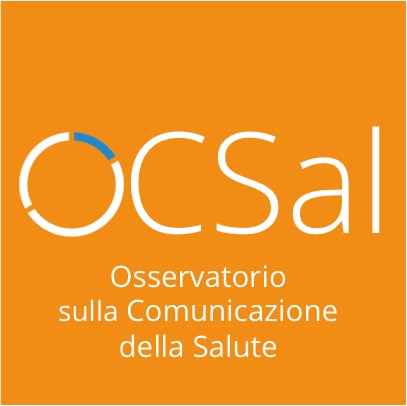Today, more than ever, health-related information is the subject of a heated public debate in the media. The COVID emergency has essentially monopolised all of the news and all of the publications’ attention. Treatment decisions and prevention behaviours are related to the evolution of health information in the media, which has recently led to a progressive disintermediation of the figures of scientific-medical authority, often in contradiction with each other, in favour of an almost self-taught approach.
It is the first permanent observatory to analyse media communication on health and healthcare issues. Through the tools of content analysis and social and marketing research, the research laboratory will try to understand the contexts, characteristics, actors, dynamics, and connotations of health and healthcare information.
The results of the surveys will be functional to the more general objective of promoting and supporting an advocacy process in and through the media. Research reports and their dissemination could in fact provide useful information to stakeholders (institutions, companies, associations), be the subject of presentation and debate in the context of events open to the public (conferences, seminars, round tables, and workshops, hosted by public entities, schools, and universities), and encourage the comparison and discussion of the results (through seminars and training activities for schools, the media, and other professionals working in the field of communication and health). In order to achieve its objectives, the observatory will carry out annual research and a series of communication and awareness-raising activities involving the mass media.
The projects
The Health Communication Observatory
 The OCSal (Health Communication Observatory) is a permanent research laboratory that studies media communication to promote better information on health and healthcare issues. The Observatory is in the process of being formally set up. It will carry out annual research entitled “Health Media” and a series of dissemination and communication activities. It is open to institutional entities, institutions, companies, health professionals, journalists, media, communication companies, schools, universities, research centres, and individual experts who work in a qualified and authoritative way on issues related to health and well-being. Through the tools of content analysis and social research, the observatory will try to understand the contexts, characteristics, actors, dynamics, and connotations of health and healthcare information. The results of the surveys will be functional to the more general objective of promoting and supporting a process of advocacy in and through the media in favour of the global ecosystem of well-being.
The OCSal (Health Communication Observatory) is a permanent research laboratory that studies media communication to promote better information on health and healthcare issues. The Observatory is in the process of being formally set up. It will carry out annual research entitled “Health Media” and a series of dissemination and communication activities. It is open to institutional entities, institutions, companies, health professionals, journalists, media, communication companies, schools, universities, research centres, and individual experts who work in a qualified and authoritative way on issues related to health and well-being. Through the tools of content analysis and social research, the observatory will try to understand the contexts, characteristics, actors, dynamics, and connotations of health and healthcare information. The results of the surveys will be functional to the more general objective of promoting and supporting a process of advocacy in and through the media in favour of the global ecosystem of well-being.
Research reports and their dissemination can in fact provide useful information to stakeholders (institutions, companies, associations), be the subject of presentation and debate in the context of events open to the public (conferences, seminars, round tables, and workshops, hosted by public entities, schools, and universities), and encourage the comparison and discussion of the results (through seminars and training activities for the world of medicine and health, the media, and schools, as well as professionals working in the media and health).
